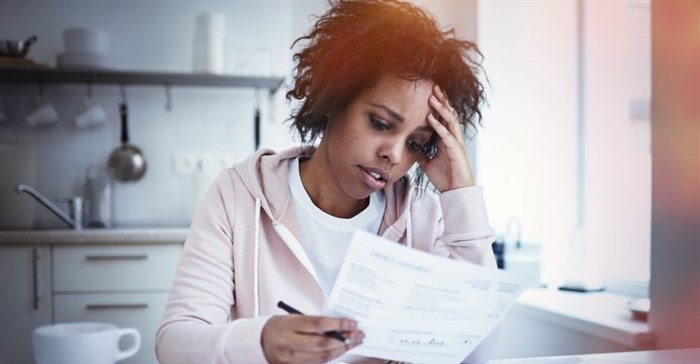






Covid-19 began as a health pandemic and has now transformed into a full-blown financial crisis around the world. While anxiety levels are declining in most regions, India, Chile, South Africa, Italy and Ireland all reported rising anxiety levels, with consumers in these countries reporting that their anxiety had increased in the last week. Indian consumers were 27% more anxious, followed by South Africa at 12%.
By contrast, anxiety levels declined by at least 10% in the United States, United Kingdom and Japan. Covid-19 remains the primary anxiety driver in the markets surveyed, except in South Africa where financial concerns took precedence. Three-quarters of South African respondents said financial stress was the main driver causing anxiety, while 58% also listed Covid-19 as a concern.
In South Africa, 65% of consumers reported feeling anxious about personal wellbeing, while 79% said they were anxious about their family’s health. More than half of consumers – 55% - were delaying making large purchases while 45% are worried about upcoming payments. At the same time, 56% of consumers are worried about losing their jobs, and a third are worried about returning to work.
“Consumers are being hit by twin concerns – health and livelihoods. Navigating these concerns is leading to a profound shift in consumer behaviour, with South Africans choosing to spend more time at home and exercising caution around big-ticket items and discretionary purchases,” said Rodger George, Africa consumer consulting leader at Deloitte.
A decline in the number of new Covid-19 cases has influenced safety perceptions, with a gradual return to more risk-controlled activities. Currently, 55% of consumers feel safe going to the store and 47% feel safe engaging in in-person services, such as going to a hairdresser, doctor or dentist. Only 34% feel safe taking a flight and 36% feel safe staying in a hotel.
Financial pressures may limit consumers’ ability to engage in previous activities. Some 41% of consumers do not have sufficient income to sustain their expenses.
More details around South Africa’s vaccine rollout would help to ease anxiety, with 24% of respondents unsure when they will be vaccinated, 19% saying they will refuse to be vaccinated, and 16% expecting that they will only be vaccinated at the end of the year. Over a third expect to be vaccinated in the next six months, despite almost 80% expressing concern around health.
Consumers are responding to these twin concerns around health and income by choosing to do more at home, and this trend is likely to continue post-pandemic. Behaviours include cooking, buying fresh food, streaming entertainment, shopping online and home improvement projects. By contrast, activities such as eating at a restaurant, going to the gym, staying at a hotel and taking a flight are seen as higher risk, and even post-pandemic these activities will continue to be less popular than before.
Spending on essential items – groceries, household goods and medicine – has remained constant, or even increased, but discretionary spending is still limited. Nearly 80% of consumers are keeping their car longer than planned.
Most consumers still make their purchases at a physical store, with 82% of groceries purchased this way, online adoption is growing at varying rates. Only 6% of groceries are bought online, but 32% of restaurant and take-out food purchases now happen online. Buying online for an in-store pick-up is also growing in popularity, as it is faster than shopping in-store and consumers don’t have to wait for delivery.
E-commerce channels are boosted by safety concerns but also by a strong convenience factor as it saves time and allows people to avoid shopping centres. Half of the consumers say they are willing to pay a premium for convenience.
“Safety is still a big concern for consumers. Although 55% of people say they feel safe to visit a store, the onus is on retailers to offer a safe environment. Retailers can think about how to make shopping less stressful and how they can provide omnichannel capability. There is an opportunity for restauranteurs, hoteliers and others to upgrade their model and look at how they can integrate into the at-home economy,” said George.
To explore Deloitte's interactive dashboard for more insights, click link here: Global State of the Consumer Tracker Dashboard